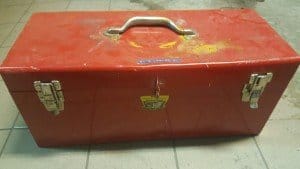Our ability to navigate the tricky subjects around family business is often correlated with the parenting skills that were either present or absent while the kids were growing up.
Most people that I speak to about these subjects have agreed with me when I mention that almost all problems we see as advisors to business families stem from things that the parents either did or did not do while raising their little ones.
Ever since I began the work necessary to becoming an advisor to family businesses (taking coaching courses, attending mediation workshops, and even completing two years in a Bowen Family Systems Theory (BFST) training program) the most wonderful side effect has been the positive impact on my own parenting.
Back in February, I wrote a couple of blogs called Tell it to the Judge (Part 1 and Part 2) in which I suggested that the only people who could truly judge anyone’s parenting skills are those who were on the receiving end of them, i.e. their children.
So I guess I would have to actually ask my kids if they agree that my parenting skills have improved over the past few years, but I think so, and even my wife agrees!
During a discussion with my fellow BFST trainees, one member of the group described a situation wherein one of their teenage children had been involved in an unfortunate situation, and someone brought up the old saying “When life gives you lemons, make lemonade”.
So today I want to revisit the lemonade question and how parents might think about handling it. When something unfortunate happens to someone you love, it is tempting to jump in, and react quickly to try to save the day.
Unfortunately, nobody has yet invented the “rewind” button in life, where you could actually just go back and “undo” something bad that befells you or someone you care about. All we can really do is start today and try to make things better going forward.
So what are some of your options when your child receives a proverbial lemon?
Well, you could hit them over the head with it and blame them and make them feel even worse about themselves. This obviously doesn’t sound like a great idea, but that doesn’t mean that it doesn’t happen, and far too often.
We could feel sorry for our child, tell them that none of this was their fault at all, and Mommy and Daddy are going to make it better. “Here you go dear, I made you some lemonade!”
I suppose that is better than the first reaction, but this too can be taken to an unhealthy extreme, and is a missed teaching opportunity.
Somewhere in between these lies a more useful and balanced approach. I will try to break it down into some possible steps to draw out the ways I have thought this through:
- Make sure that the child is OK and that there is no more immediate danger or problem.
- Empathize with them, explain that sometimes bad stuff happens to good people.
- Explain the lemonade proverb to them, along with the old “it’s not what happens to you that’s important, it’s how you DEAL with what happens to you”.
- Don’t fall for the temptation to make the lemonade for them. Feel free to share your lemonade recipes (i.e. things that happened to you but which you overcame)
- Inquire about how their lemonade making is going, ask for a taste, and compliment them on the fine beverage they have produced.
- Encourage them to learn life’s lessons so that they can hopefully avoid being dealt those same particular lemons again.
- In due time, point out how proud you are of the way they made that batch of lemonade, and that you are sure that whenever they get some other kind of lemons, you are confident that they will be able to handle them with aplomb.
If you can do all of those things, chances are pretty good that your child will judge your parenting skills to be more than adequate.
I’ll drink to that.
Steve Legler “gets” business families.
He understands the issues that families face, as well as how each family member sees things from their own viewpoint.
He specializes in helping business families navigate the difficult areas where the family and the business overlap, by listening to each person’s concerns and ideas. He then helps the family work together to bridge gaps by building common goals, based on their shared values and vision.
His background in family business, his experience running his own family office, along with his education and training in coaching, facilitation, and mediation, make him uniquely suited to the role of advising business families and families of wealth.
He is the author of Shift your Family Business (2014), he received his MBA from the Richard Ivey School of Business (UWO, 1991), is a CFA Charterholder (CFA Institute, 2002), a Family Enterprise Advisor (IFEA 2014), and has received the ACFBA and CFWA accreditations (Family Firm Institute 2014-2015).
He prides himself on his ability to help families create the harmony they need to support the legacy they want. To learn how, start by signing up for his monthly newsletter and weekly blogs here.




